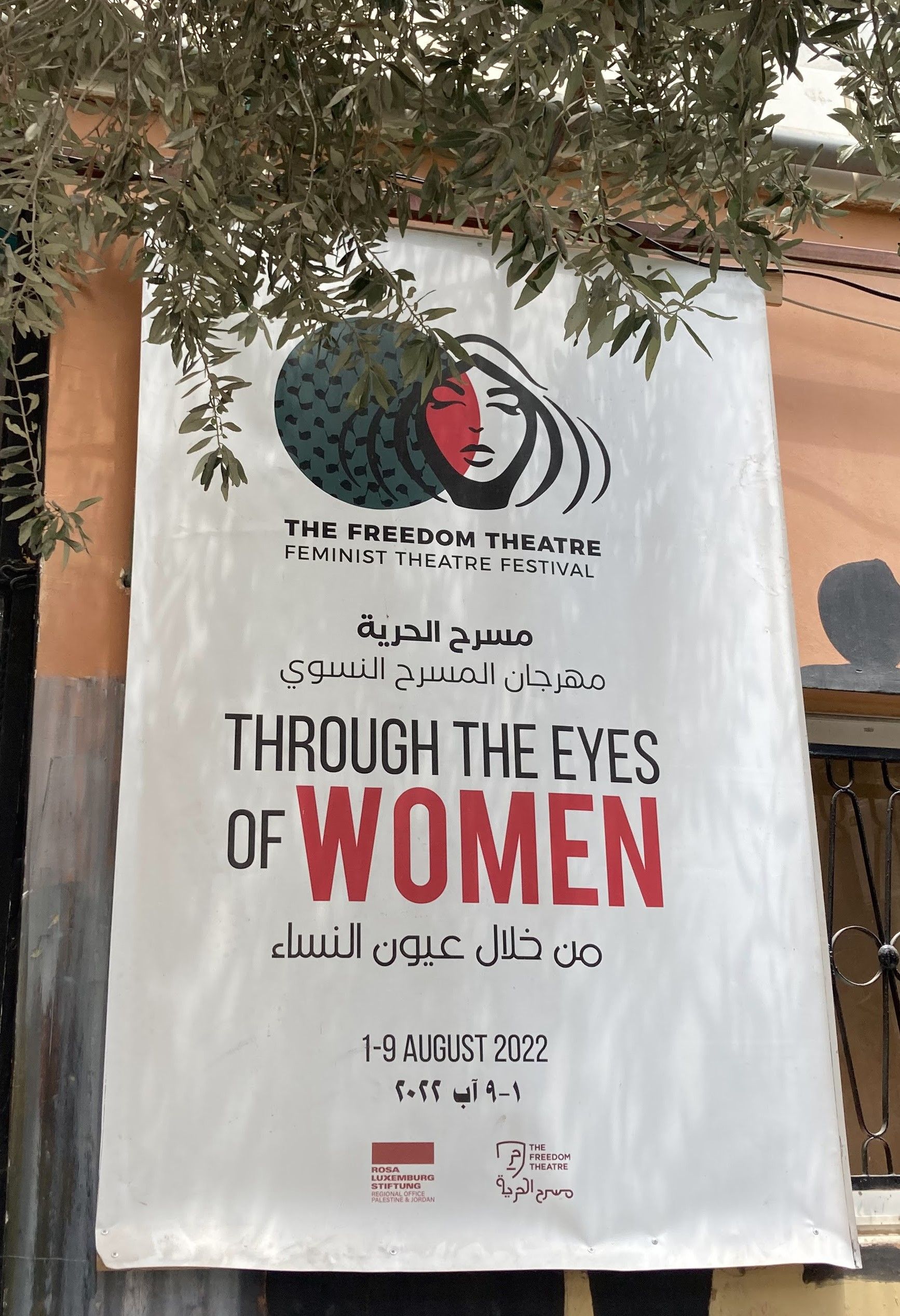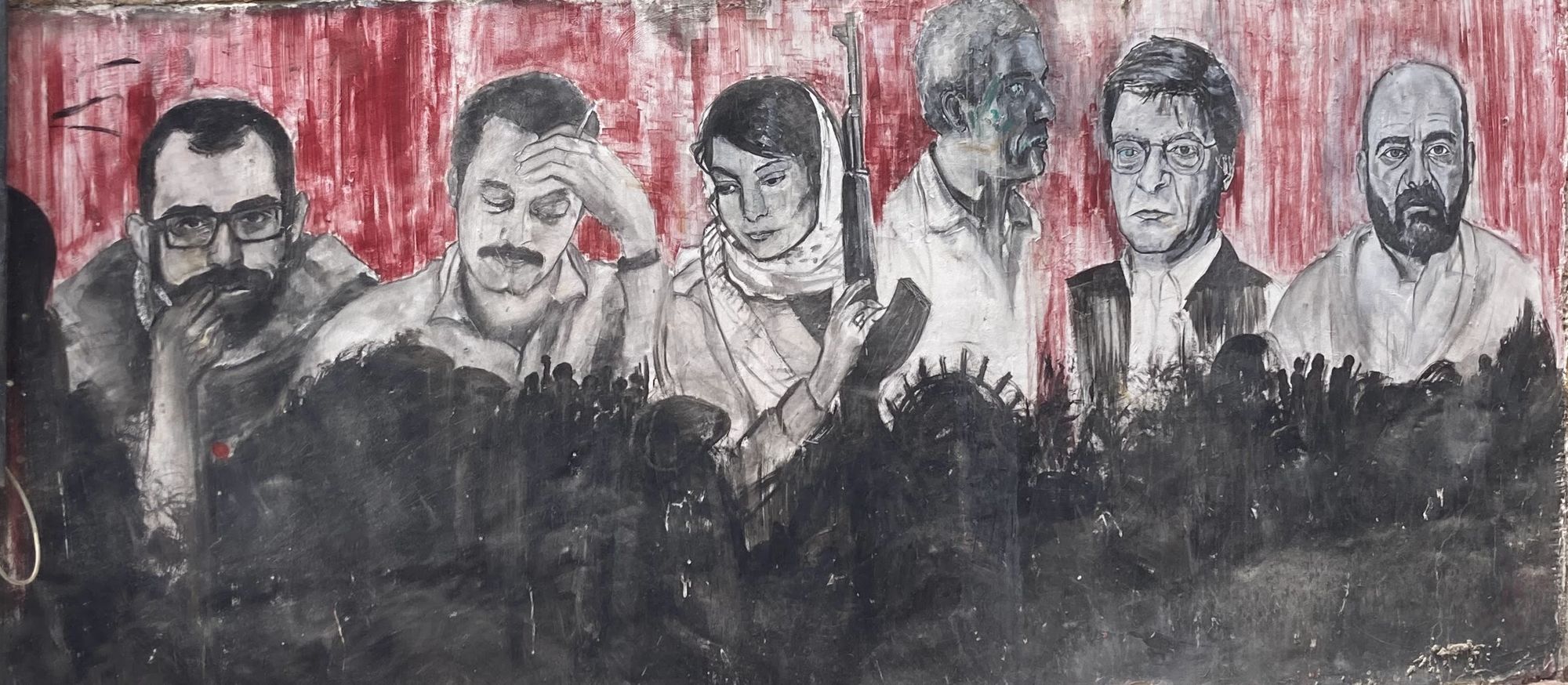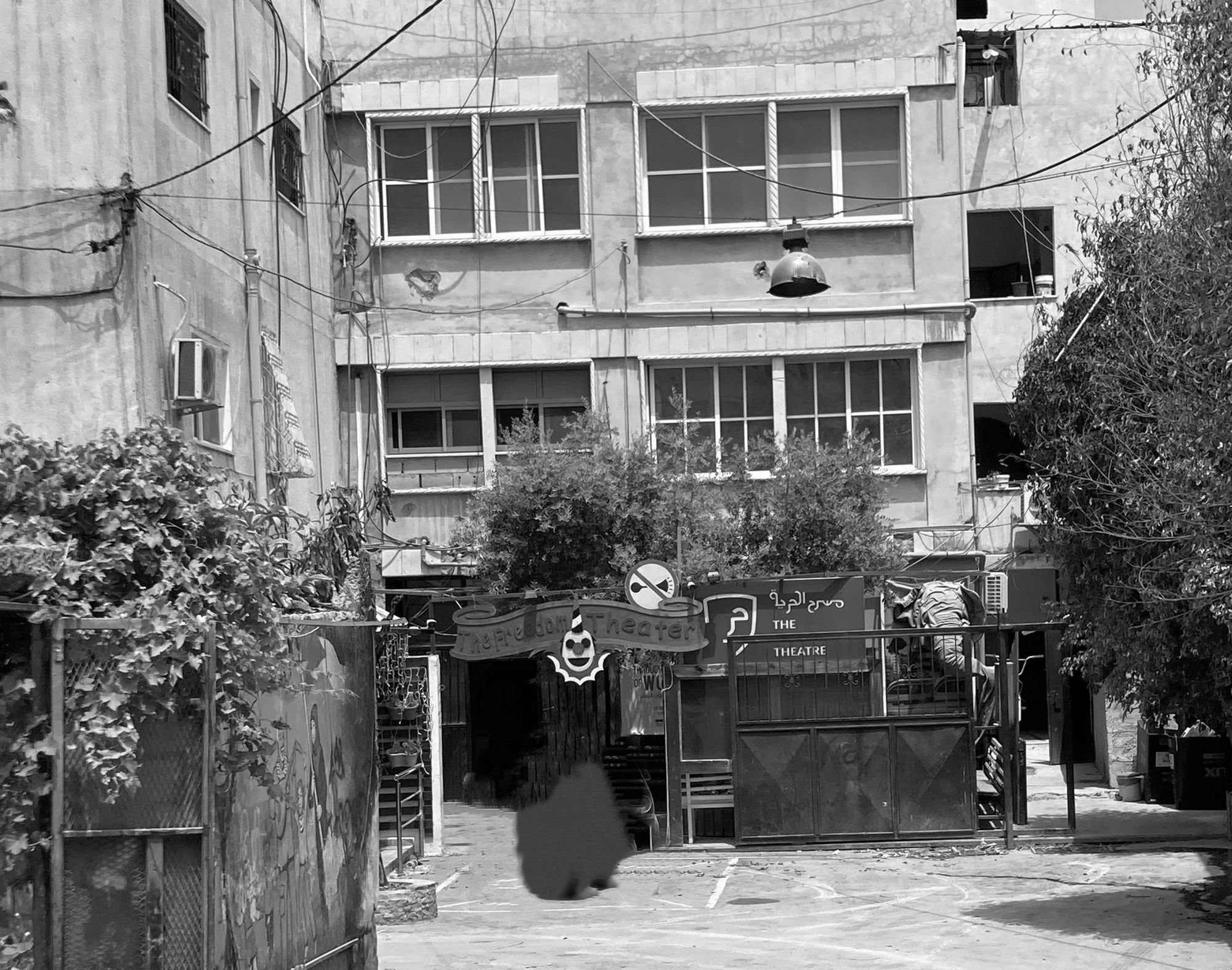The Jenin refugee camp (Palestine) became the setting for a significant military operation on September 6, which resulted in the arrest of Muhammad Naghnaghia (member of the Al Quds Brigades) by the Israeli army. There was, however, more to this operation than just an arrest. The Israeli forces seized control of the well-known Freedom Theatre in Jenin (where Adnan, Muhammad Nghanaghia’s brother, serves as the head technician), using the structure as a defensive position against any resistance attempts to counter Israeli aggression. The recent developments in the Jenin camp are not isolated incidents. Between the 2nd and 3rd of July, the Israeli army attacked the camp and the city of Jenin by air and land (1000 soldiers and more than 150 bulldozers were reported to be employed). This marks the most severe assault by Israel since the infamous Jenin Battle of 2002, during which approximately 4000 camp inhabitants were made homeless. During this military offensive, The Freedom Theatre was also damaged. The outside yard of The Freedom Theatre was used as a military support point by the Israeli army, and the ceilings were compromised. Members of the staff were also personally affected by this offensive: they described their experiences and addressed more generally the invasion in a live stream on the 9th of July.
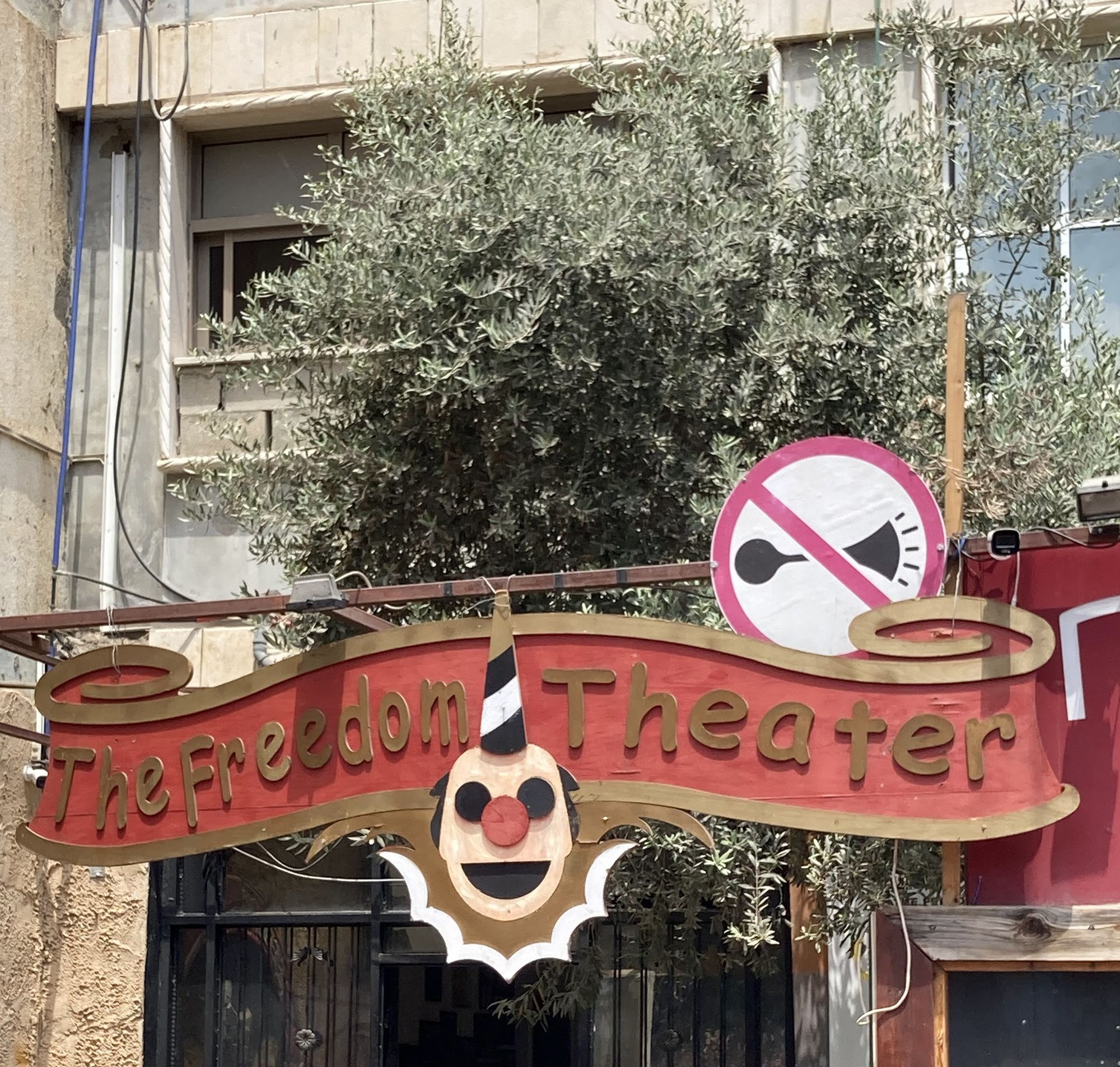
The Freedom Theatre has been attacked several times over the years as a cultural institution. What is the history of this theatre and what is its role in the camp, and finally what are the implications of attacking a cultural institution?
The Freedom Theatre was created in 2006 by Juliano Mer Khamis, Jonatan Stanczak, and Zakaria Zubeidi. Still, its origins go back further than that and deserve to be remembered as an example of the complexity of Palestinian society and how, despite all difficulties, different people keep struggling to maintain, continue, and innovate Palestinian cultural heritage.
As shown by Varghese, the roots of the theatre can be traced back to the first intifada, with Arna Mer (mother of Juliano Mer Khamis) playing a pivotal role. Born in 1929 in Rosh Pinna, a Zionist settlement in Palestine, Mer initially served in the Palmach brigade during the 1948 Arab-Israeli War. However, her perspective transformed over time. In the 1950s, she defied societal expectations by marrying Saliba Khamis, a Palestinian Christian who served as the secretary of the (Israeli) Communist Party. Mer fearlessly protested against the occupation, and in the 1980s, she extended her political commitment by establishing the Care and Learning Project. With this project, she provided additional after-school classes for children in Jenin, integrating creative approaches to help them cope with trauma. Thanks to this project, she earned the Right Livelihood Award (known as the Alternative Nobel Price), with whose reward she created, alongside her son Juliano Mer-Khamis, The Stone Theatre (named after the stones thrown during the intifada). The theatre began to decline after Arna Mer died in 1995. As shwon in the documentary Arna’s childrens, several students who participated in Theater Stone projects died in armed resistance actions. It was out of the ruins of the battle of Jenin in 2002 that completely destroyed The Stone Theatre and under the influence of his late mother's legacy that Juliano Mer Khamis founded the Freedom Theatre with Jonatan Stanczak and Zakaria Zubeidi.
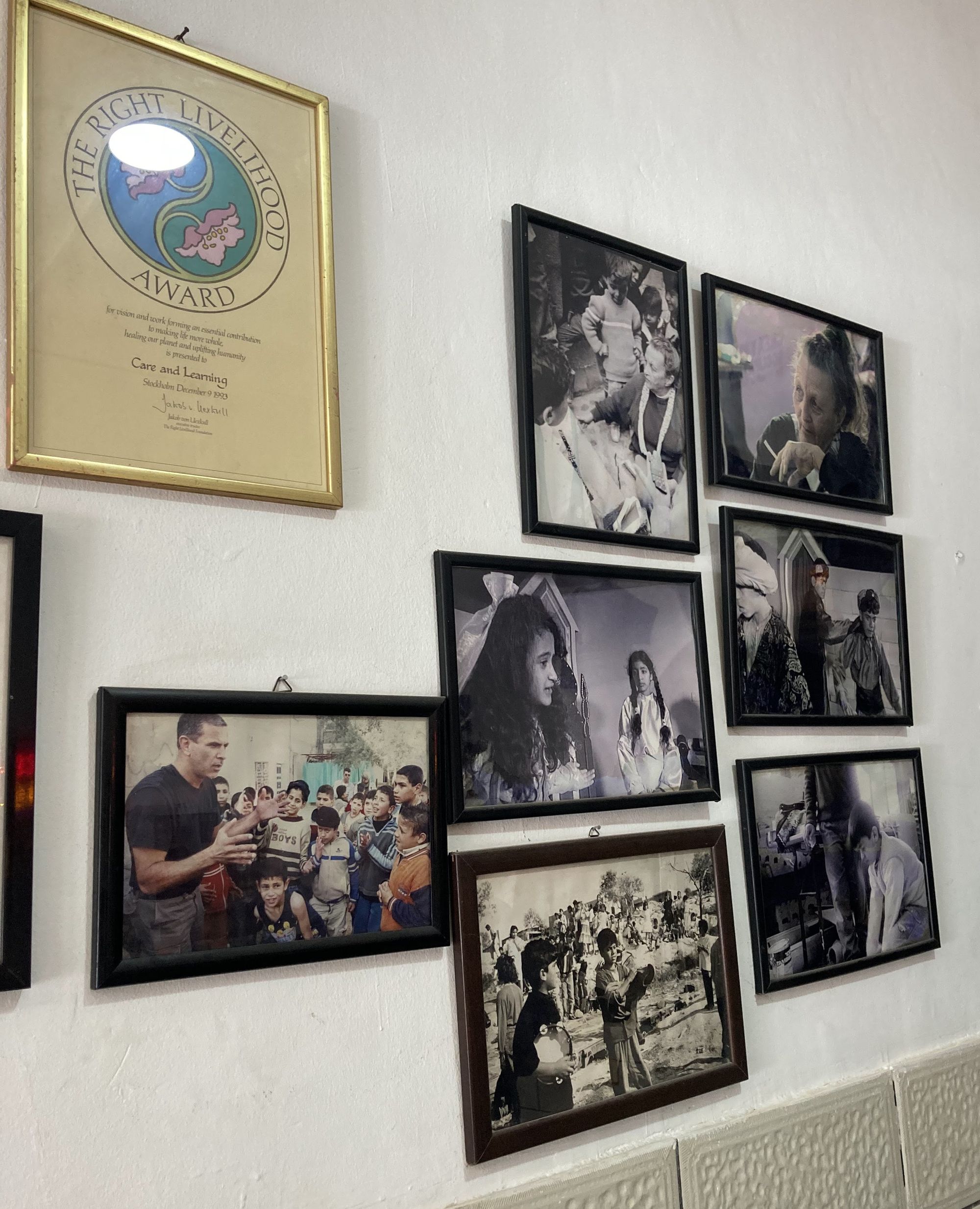
The Freedom Theatre has nurtured a dynamic group of artists dedicated to advocating for equality, justice, and freedom. This artistic community has toured productions globally, drawing international attention to one of Palestine’s most aggressively attacked refugee camps. In addition to a comprehensive three-year training program for actors, the Freedom Theatre also offers training and professional opportunities in film, photography, stand-up comedy, and writing. The Freedom Theatre serves as a crucial sanctuary for the population of the camp, specifically children and women, providing them with a space to play, create, and explore, away from the recurring traumas they endure due to Israel’s military occupation.
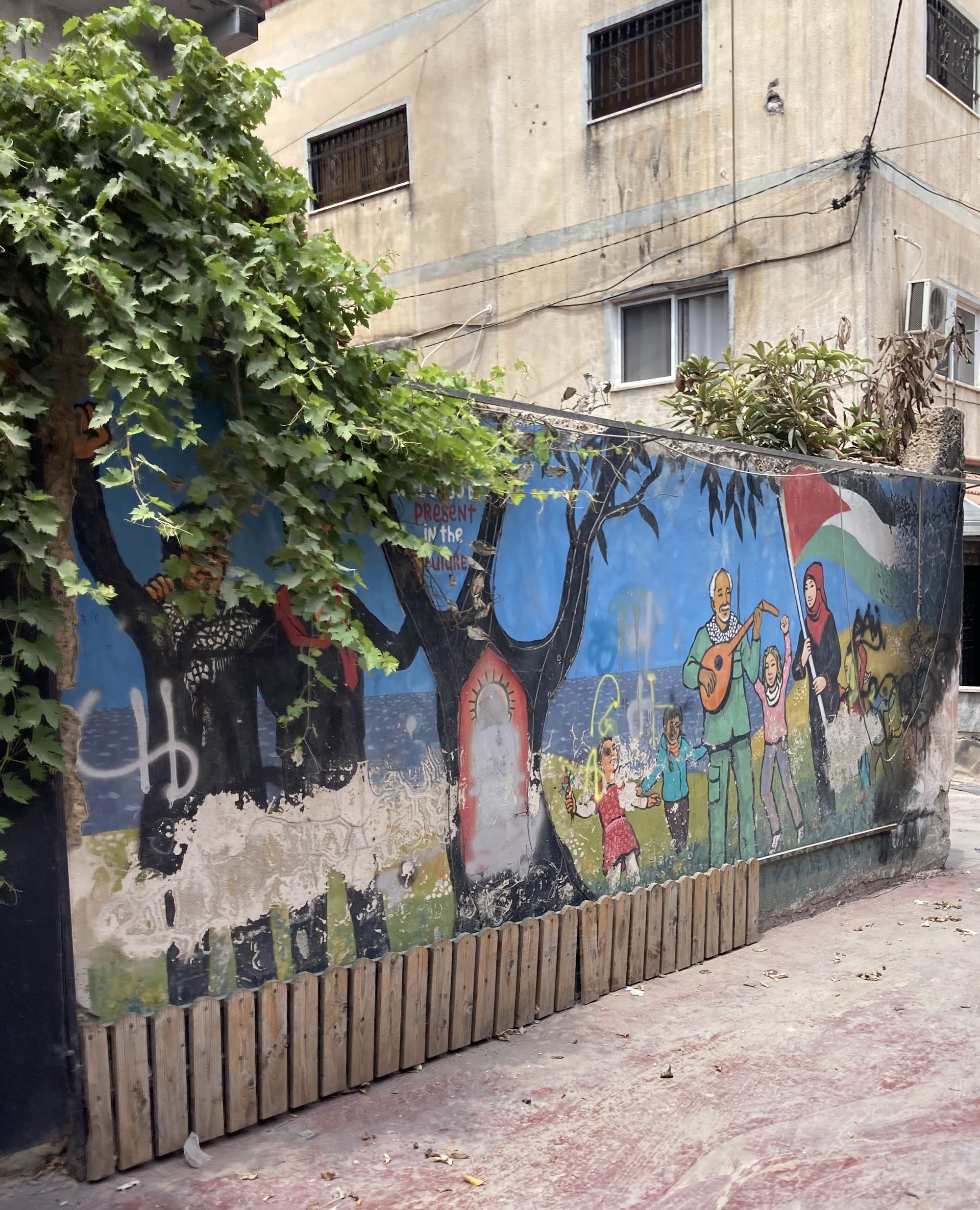
However, the Freedom Theatre's productions denounce Palestinian society as well. Since its opening, the theatre has had to face criticism from some people of the Palestinian camp that accused it of corrupting morals and being a Zionist outpost. On the other hand, Israel was concerned about possible collaboration with armed resisters and the crossing of the green line by persons with Israeli citizenship (Mer Khamis and Stanczak).
The Theatre's founders were acutely aware of the accusations of corrupting the youth of Palestinian society, as evidenced by an interview in which Juliano Mer Khamis predicts his death by stating that he will be killed by an outraged 'fucked-up' Palestinian ' who accuses him of 'corrupting the youth of Islam'. Eventually, Mer Khamis was indeed killed by a Palestinian in 2011. Following this event, the IDF continuously arrested the Theatre’s staff members and students for a year under the guise of security operations. Despite all this, the Freedom Theatre continued its activities, and its executive board included Noam Chomsky, Judith Butler, Elias Khoury and Avraham Oz.
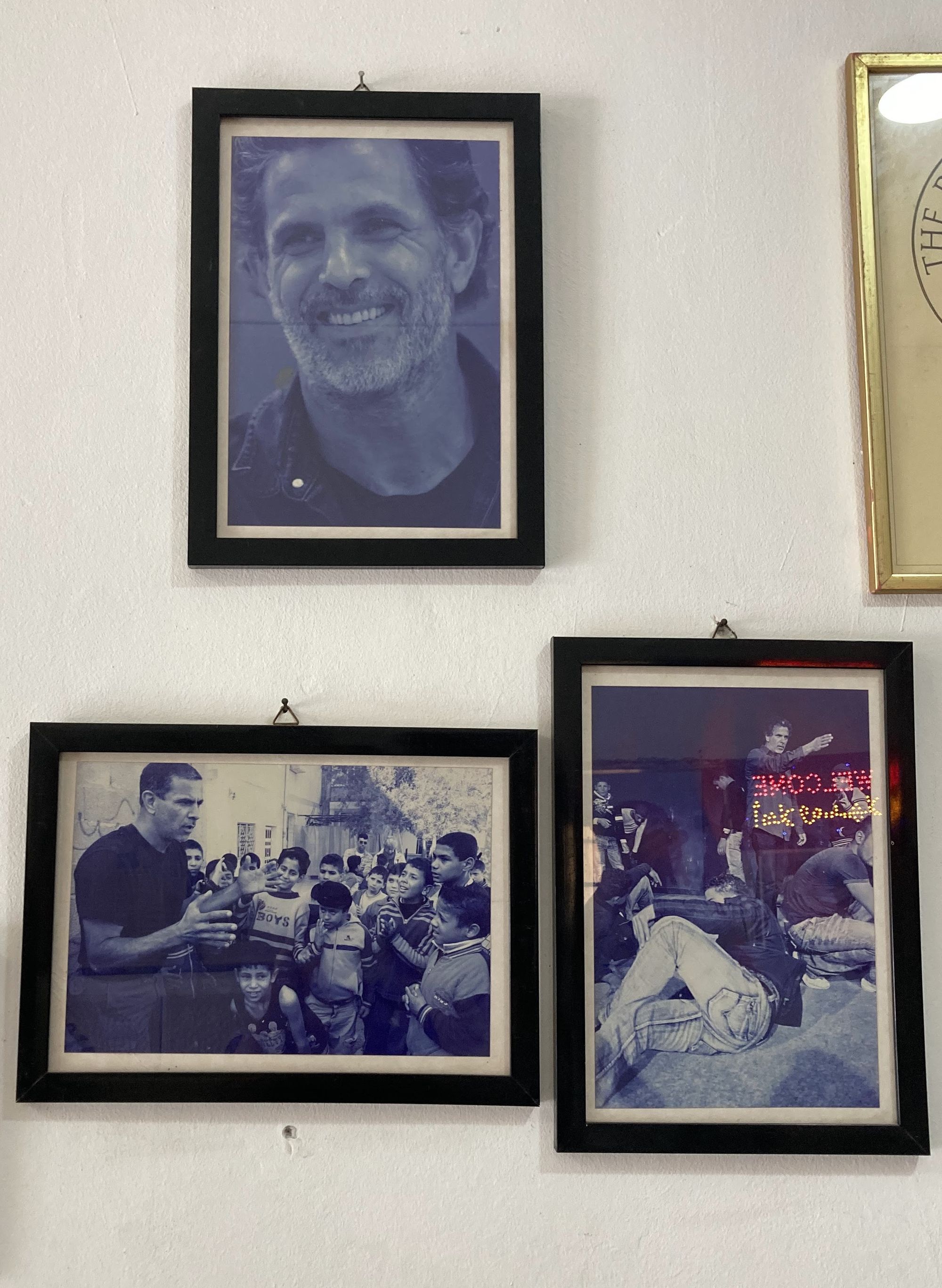
What does it mean to do theatre in Palestine and why is it so contentious? Directors of various theatres say that their work is imperative because it shows the world the human face of Palestinians. In the case of The Freedom Theatre, productions arise from working with camp residents who can then give their perspective on living in their society under occupation. Moreover, the performances themselves are often participatory and openly call the audience to political reflection and how to organise themselves, thus offering a space for public reflection to a population, the Palestinian population, which is excluded from the domains of public debate. The practice of Freedom Theatre, Varghese points out, thus contributes to the creation of a counter-public that can create discursive strategies and gather oppositional resources.
Attacks on cultural institutions, like The Freedom Theatre in Palestine, go beyond physical destruction. They are colonial tactics aimed at erasing the cultural heritage of the occupied, denying their existence. By targeting the Freedom Theatre in Jenin, assailants seek to erase its history, which represents people crossing boundaries made up by the colonial power and challenging the occupier-occupied division scheme. This erasure contributes to the denial of Palestinians' identity and their right to self-representation and self-narration. The attack on the theatre is an act of cultural erasure, silencing Palestinian voices and preventing the authentic portrayal of their experiences. Such assaults perpetuate the systematic denial of Palestinian existence and underscore the importance of protecting their cultural heritage and spaces of self-expression.
The Freedom Theatre is back in business and is now organizing the Feminist Theatre Festival and continues, even in the face of renewed attacks, to teach life.
